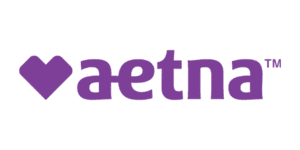
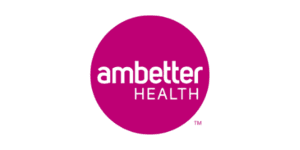

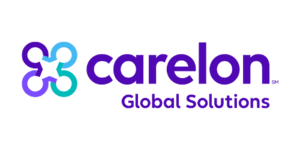
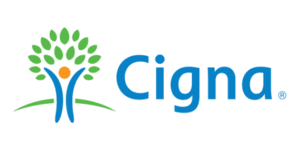


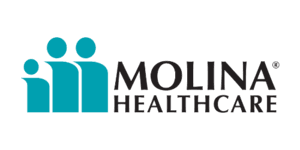
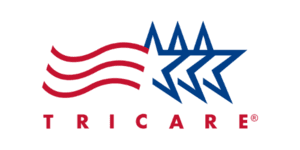

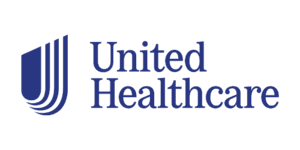
We Accept Most Major Health Insurance
Apex Recovery Tennessee is a licensed and accredited recovery facility specializing in Attention-Deficit/Hyperactivity Disorder (ADHD) treatment. We focus on delivering high-quality care while removing barriers to getting help, including accepting health insurance and offering to verify your mental health coverage levels on your behalf. Our behavioral health centers are easily accessible to residents from Nashville, Memphis, Knoxville, Clarksville, Murfreesboro, and surrounding areas, making sure support is nearby for those in need.
If you’re looking for answers about ADHD treatment or have questions about health insurance coverage, we are here to help. Call Apex Recovery Tennessee today at (615) 703 4639 to learn how we make accessing treatment simple and supportive every step of the way. Whether you’re just starting to explore your options or are ready to move forward, our qualified team is ready to guide you. Remember, taking the first step to seek help for ADHD is a sign of strength, and it’s completely normal to have questions or feel uncertain along the way – we are here to listen.
Check Your Insurance
with Apex Recovery
Apex Recovery accepts insurance and offers support in verifying coverage levels for ADHD treatment. Our experienced team can help you understand your benefits, making sure you can access care with confidence and clarity. This service simplifies the process, so you can focus on finding the right mental health treatment for your needs.

What is Private Health Insurance Coverage?
Private health insurance coverage is a type of medical insurance provided through employers, organizations, or purchased directly from insurers. It helps cover the cost of medical services, including behavioral health treatments like ADHD care, making crucial support more accessible to those who need it.
Mental health coverage in Tennessee differs between private health insurance plans. For example, factors like in-network providers, out-of-pocket expenses such as deductibles and co-pays, and prior authorization requirements can all impact your benefits. Having an understanding of your plan’s specifics allows you to make informed decisions about your treatment and minimize unexpected costs.
Check Your Health Insurance Coverage
"*" indicates required fields
Does Insurance Cover Assessments for Attention-Deficit/Hyperactivity Disorder?
Yes, insurance does typically cover assessments for Attention-Deficit/Hyperactivity Disorder, but coverage levels vary depending on your insurance provider, plan type, and specific mental health benefits. For instance, factors like in-network providers, prior authorization, and deductible requirements also influence what programs are covered and how much uninsured costs you may need to pay.
At Apex Mental Health Recovery, we aim to make the process as straightforward as possible. We offer free and confidential ADHD assessments as part of our treatment admissions process, helping you take the first step toward care without added financial stress. Contact our qualified team at (615) 703 4639 so we can assist you in understanding your insurance benefits and help you access the support you deserve.
Does Health Insurance Cover Inpatient ADHD Treatment in Tennessee?
Yes, health insurance does frequently cover inpatient ADHD treatment, but the extent of coverage depends on your insurance provider, plan type, and specific behavioral health benefits. Factors like in-network providers, co-pays, and deductibles can also affect the cost and coverage of services, making it necessary to understand your plan details.
Inpatient residential rehab for ADHD in Tennessee provides a structured environment focused on detailed care, which can include therapy, skill-building, and behavioral health support. Mental health treatment programs aim to address ADHD symptoms in a focused environment, helping people to develop tools for long-term success. Apex Recovery can assist with verifying your insurance coverage to explore behavioral health treatment options with confidence.
Does Health Insurance Cover Outpatient ADHD Treatment in Tennessee?
Yes, health insurance does commonly cover outpatient ADHD treatment, though the specifics of coverage depend on your insurance provider, plan type, and the mental health benefits included in your policy. Details such as co-pays, deductibles, and whether the provider is in-network will all impact your out-of-pocket costs.
Outpatient options like Intensive Outpatient Programs (IOP) and Partial Hospitalization Programs (PHP) in the Volunteer State offer flexible, structured support while allowing people to maintain daily responsibilities. Such programs focus on addressing ADHD symptoms through therapy, coping strategies, and skill-building, tailored to your needs. Apex Recovery is available to help verify your insurance benefits and guide you in exploring your ADHD treatment options.
Private ADHD Treatment Centers in Tennessee That Accept Insurance
Locating private ADHD treatment centers that accept health insurance can significantly ease access to specialized care and reduce financial stress. Tennessee offers reputable behavioral health facilities accepting insurance plans, including Apex Recovery locations known for patient-focused care and extensive services. Below are two Apex Recovery centers committed to supporting people with ADHD.
- Apex Recovery Brentwood: 209 Ward Cir, Brentwood, TN 37027
- Apex Recovery Columbia: 2710 Trotwood Ave STE A & B, Columbia, TN 38401
How to Find Attention-Deficit/Hyperactivity Disorder Recovery Centers Near Me That Take Insurance
Finding the right ADHD recovery center near you that accepts insurance can be simplified with the right approach. Consider these practical steps to let the facility meet your treatment and financial needs comprehensively.
- Use Local Search Terms to Find ADHD Rehab Centers Near You: Searching local terms like “ADHD treatment near me,” “ADHD rehab in Tennessee,” or “Brentwood ADHD health services” can help pinpoint behavioral facilities in your area. This allows for a focused search, connecting you with available options in your region.
- Visit the Facility’s Website to Check Insurance Information: Explore official websites for mental health centers in cities like Nashville, Brentwood, or Columbia. Facilities often share detailed insurance information, treatment programs, and contact options online to streamline the decision-making process.
- Call the ADHD Rehab Facility to Discuss Your Needs: Speaking directly with a behavioral health facility can clarify questions about services, insurance coverage, and personalized care. Call reputable centres to connect with professionals ready to assist with treatment planning.
- Check for Accreditation Like Joint Commission Certification: Reputable facilities are frequently accredited by organizations like The Joint Commission. Accreditation allows high-quality care standards, so always verify this to make sure the center aligns with best practices in ADHD treatment.
- Use Local Search Terms to Find ADHD Rehab Centers Near You: For instance, Apex Recovery centers in Brentwood or Columbia offer specialized mental health treatment and accept insurance to make treatment more accessible. Confirm coverage directly with these facilities for tailored guidance.
Free ADHD Assessment
Does Health Insurance Cover Therapy and Counseling for ADHD?
Yes, health insurance does typically cover therapy and counseling for ADHD, however the range of services covered is influenced by your insurance company, plan specifics, and the mental health benefits included. Co-pays, deductibles, and in-network status of therapists may also influence unexpected costs, making it important to review the details of your policy.
Mental health therapy treatment covered may include individual counseling, group sessions, or evidence-based approaches like Cognitive Behavioral Therapy (CBT) and Dialectical Behavior Therapy (DBT). Such treatments target managing ADHD symptoms, improving coping mechanisms, and enhancing daily functioning. Checking your plan’s details allows you to understand the therapies available under your coverage.
Does Insurance Cover ABA Therapy for ADHD?
Yes, insurance may cover Applied Behavior Analysis (ABA) therapy for ADHD, but the level of coverage can vary significantly depending on your insurance provider, plan type, and benefits. Some plans may offer extensive coverage, while others include limited benefits, making it necessary to review your plan’s specifics.
Apex Mental Health Recovery specializes in designing tailored programs to suit your unique coverage levels and the ADHD treatment needs. Our team delivers a personalized approach, helping you access ABA therapy aligned with your plan and focused on addressing your specific challenges. Contact Apex Recovery to understand your options and develop a customized care plan.
Does Health Insurance Cover Attention-Deficit/Hyperactivity Disorder Medication?
Health insurance may cover medication for ADHD, however the specifics of coverage levels depend on your insurance provider, plan type, and drug formulary. For example, factors such as co-pays, prior authorization requirements, and preferred medication lists can also influence accessibility and out-of-pocket costs.
Commonly prescribed ADHD medications that might be covered include Adderall, Ritalin, Vyvanse, and Strattera. Medication must be prescribed by a licensed healthcare provider as part of a thorough treatment plan tailored to your personal needs. It is important to confirm coverage details with your insurance provider to understand your options fully.
Does Insurance Cover Retreats for Attention-Deficit/Hyperactivity Disorder?
Insurance does frequently cover retreats for ADHD, but coverage levels can vary based on the provider, your specific health plan, and the services included. Some plans might cover retreat-based programs as part of comprehensive mental health benefits, while others may have limited or no coverage for these specialized treatments.
Apex Recovery offers assessments to identify the most appropriate mental health treatment methods for people with ADHD. Our experienced team can work closely with you to design a plan aligned with your needs and coverage levels, providing personalized care that maximizes your benefits while supporting your path to improved mental health.
Common ADHD Treatment Programs in Tennessee Covered by Health Insurance
Tennessee provides a wide range of ADHD treatment programs covered by health insurance, offering solutions for people with varying needs and challenges. Treatment programs include outpatient therapy, intensive programs, and residential care, each targeting different aspects of ADHD management. With options tailored to specific difficulties, people can access personalized support for long-term success and well-being.
Intensive Outpatient Programs (IOPs) for Executive Function and Emotional Regulation Support
Intensive Outpatient Programs (IOP) are structured therapy programs designed for individuals requiring a higher level of care while maintaining their daily routines. IOPs typically involve multiple therapy sessions each week, offering a balance of intensive care and flexibility, which aim to provide focused support for mental health in a non-residential setting.
For people with ADHD, IOPs address specific challenges such as executive function deficits and emotional dysregulation. Patients learn practical strategies to enhance organizational skills, manage impulsivity, and respond to emotional triggers more effectively. Such programs equip people with the tools they need to improve stability and improve overall functioning in their personal and professional lives.
Outpatient Therapy for Focus, Impulsivity, and Time Management Issues
Outpatient therapy is a widely accessible treatment option that involves regularly scheduled sessions with a licensed therapist. Designed for people who do not require intensive care, it allows people to receive ongoing support while continuing their daily activities. Sessions focus on goal setting, skill development, and addressing specific behavioral or emotional concerns.
For those managing ADHD, outpatient therapy is particularly valuable in tackling issues like poor focus, impulsive decision-making, and time management struggles. Therapists work closely with people to develop tailored strategies that help aid self-awareness, improve attention spans, and create effective routines. Consistent guidance and adjustments allow progress and empowerment in daily life.
Partial Hospitalization Programs (PHPs) for Severe or Complex Attention Disorders
Partial Hospitalization Programs (PHP) are structured, intensive treatment options designed for individuals requiring a higher level of care than outpatient services. PHPs often involve full-day therapeutic sessions, combining various evidence-based therapies and support to address mental health challenges. Such programs allow people to return home at the end of each day, maintaining some degree of daily routine.
For people with severe or complex ADHD, PHPs offer comprehensive care tailored to their unique needs. They integrate therapy sessions, skill-building exercises, and medication management to address difficulties such as focus, impulsivity, and emotional dysregulation. People benefit from a multidisciplinary approach, helping them develop effective coping mechanisms and improve their overall daily functioning.
Residential (Inpatient) Treatment for Attention Disorders and Co-Occurring Conditions
Residential (inpatient) treatment offers an immersive, 24/7 care environment for people with complex mental health needs. Patients reside at the mental health facility and receive round-the-clock support through a combination of structured therapy sessions, group activities, and individualized care plans. This level of care is ideal for those who require comprehensive and uninterrupted attention.
For those who are struggling with ADHD and co-occurring conditions, residential treatment provides a stable and structured setting to address their unique challenges. Through intensive therapies, tailored skill-building activities, and holistic care approaches, patients can focus on developing long-term coping strategies. The integrated support helps improve emotional, behavioral, and cognitive progress, promoting sustained recovery and growth.
Medication Management Through Covered Mental Health Services
Medication management is a clinical service focused on monitoring and adjusting prescriptions to ensure the best treatment results. It involves regular consultations with a healthcare provider who assesses the effectiveness of the medication, tracks progress, and makes necessary adjustments to dosage or prescription plans to suit the patient’s needs.
For people addressing ADHD challenges, medication management is critical in optimizing the effectiveness of prescribed treatments, such as stimulants or non-stimulants. Healthcare providers address concerns like side effects, adjust therapies as needed, and make sure that medications align with the patient’s specific symptoms and lifestyle. This ongoing support helps improve focus, emotional stability, and overall well-being.
Cognitive Behavioral Therapy (CBT) for Long-Term Focus and Behavioral Improvement
Cognitive Behavioral Therapy (CBT) is an evidence-based therapeutic approach aimed at identifying and reshaping negative thought patterns and behaviors. Through structured sessions, people learn to recognize unhelpful thinking, develop coping strategies, and practice behavioral techniques that support more constructive actions and emotions in everyday life.
For individuals experiencing ADHD symptoms, CBT offers targeted strategies to aid focus, manage impulsive tendencies, and establish healthier routines. By improving self-awareness and teaching practical skills, CBT helps patients address the unique challenges posed by ADHD. This long-term therapy supports positive behavioral changes and equips people with tools to succeed in both personal and professional aspects of life.
Telehealth Services for Convenient Treatment Access Across Tennessee
Telehealth services allow people to access mental healthcare professionals remotely through secure virtual platforms. Online services include video consultations, online therapy sessions, and digital assessments, providing a seamless way to receive care from the comfort of home. Telehealth removes geographical barriers and allows for timely support while maintaining privacy and convenience for patients.
For those people struggling with ADHD, telehealth offers a flexible and accessible way to engage in therapy, medication management, and routine follow-ups. This mode of care is particularly beneficial for those with busy schedules or limited transportation options, enabling consistent support to address focus, time management, and emotional regulation challenges without disruption to daily activities.
Behavioral Coaching and Life Skills Development Included in Some Health Plans
Behavioral coaching and life skills development are personalized services designed to help people improve their daily functioning and achieve personal growth. By focusing on practical strategies, these services address specific areas such as setting routines, managing priorities, and enhancing decision-making skills, inspiring people to create more balanced and productive lives.
For people with ADHD, these services offer targeted support to overcome common challenges like disorganization, poor time management, and difficulty setting and achieving goals. Through tailored coaching sessions, people can learn effective methods to structure their day, build sustainable habits, and stay on track with long-term objectives, improving both confidence and independence.
Check Your Insurance Coverage
Health Insurance Providers That Cover ADHD Treatment in Tennessee
BlueCross BlueShield of Tennessee, Cigna Healthcare, and Aetna offer robust plans with extensive mental health benefits, including coverage for ADHD treatment. Private health insurance providers support services such as therapy, medication management, and specialized programs, allowing members to access the mental health treatments they need. With varied plan options, people can find coverage tailored to their unique ADHD challenges.
UnitedHealthcare (UHC), Ambetter (from Celtic Insurance), and Oscar Health also focus on accessible ADHD treatment solutions. Their plans often include behavioral health support, telehealth options, and medication coverage, providing flexibility for people managing ADHD. Such providers prioritize convenience and affordability, helping members receive detailed care without unnecessary barriers.
Humana, Molina Healthcare, National General (an Allstate company), and Farm Bureau Health Plans also provide tailored ADHD coverage. They offer resources that address therapy and medication needs while promoting individualized care. By adopting a customer-focused approach, these insurers allow members to access well-rounded ADHD treatment designed to enhance daily functioning and overall well-being.
Common Types ADHD Covered by Health Insurance in Tennessee
ADHD is classified into three primary types: inattentive, hyperactive-impulsive, and combined. Each of these types presents distinct challenges, requiring targeted approaches for effective management. Health insurance in Tennessee often covers treatments that address the unique aspects of each type, helping people to develop strategies for improved quality of life. Understanding these categories is key to achieving optimal care and successful outcomes.
ADHD, Inattentive Type (ADHD-I)
ADHD, inattentive type (ADHD-I), is characterized by difficulties in sustaining attention, following instructions, and completing tasks. People often struggle with forgetfulness, disorganization, and a tendency to overlook details, creating challenges in both academic and professional environments. This type may not include the hyperactive symptoms typically associated with ADHD.
Professional treatment plays an important role in helping people with ADHD-I overcome these obstacles. Therapy, coaching, and medication can improve focus, organizational skills, and time management. With the right support, people can learn to address inattentiveness and build habits that aid long-term success in their daily lives.
ADHD, Hyperactive-Impulsive Type (ADHD-H)
ADHD, hyperactive-impulsive type (ADHD-H), is marked by symptoms such as excessive energy, restlessness, impulsive decisions, and difficulty staying seated or quiet. People with this type often exhibit behaviors that disrupt activities at home, school, or work, which can be challenging to manage without intervention.
Treatment is invaluable for those with ADHD-H, as professional care addresses both hyperactivity and impulsivity. Therapies focusing on behavioral control and emotional regulation, combined with potential medication options, offer tools to reduce disruptive tendencies. Such resources provide a foundation for lasting improvement and better day-to-day functioning.
ADHD, Combined Type (ADHD-C)
ADHD, combined type (ADHD-C), involves a mix of inattentive and hyperactive-impulsive symptoms. People may face challenges such as difficulty concentrating, excessive fidgeting, impulsivity, and inability to complete tasks. ADHD-C tends to encompass the widest range of symptoms, making it particularly complex to manage.
Comprehensive professional treatment is essential for being able to address ADHD-C. By integrating therapies that target both inattentiveness and hyperactivity-impulsivity, people gain strategies for managing diverse symptoms. Medication management and behavioral interventions further enhance overall outcomes, supporting individuals in achieving greater stability and well-being.
How to Get Insurance to Pay for ADHD Treatment in Tennessee
An easy and stress-free way to determine your insurance coverage for ADHD treatment is by contacting Apex Recovery. Our qualified team will review your policy, confirm your coverage levels, and handle the insurance process on your behalf, allowing you to focus on receiving the mental health treatment you need without added complexities.
We advise you to call Apex Recovery Tennessee today at (615) 703 4639 or conveniently complete our contact form. Our caring staff is ready to assist and guide you through securing the right support for your ADHD treatment, giving you access to effective care tailored to your needs. Long-term recovery is possible, and you deserve a support system that prioritizes your healing and growth – you do not have to go through this alone.
- ADHD is the most commonly diagnosed behavioral disorder in children, and private residential rehab programs often provide tailored interventions that address both ADHD symptoms and co-occurring conditions.
- In 2023, approximately 15.5 million U.S. adults (6.0%) had a current ADHD diagnosis, with many benefiting from telehealth services to access behavioral treatments and medication prescriptions, highlighting the importance of accessible care options.
- Medication remains the most effective treatment for ADHD symptoms, with nearly 69.3% of children diagnosed with ADHD receiving medication, underscoring the value of structured treatment plans often available in private rehab settings.
- Among stimulant abusers, 75.8% misuse Adderall, a medication commonly prescribed for ADHD, highlighting the importance of professional rehab programs to prevent misuse and support proper treatment.
- In Tennessee, 8.9% of students have misused prescription drugs, including Adderall, highlighting the importance of private rehab facilities that offer specialized programs to address both ADHD and substance misuse.
